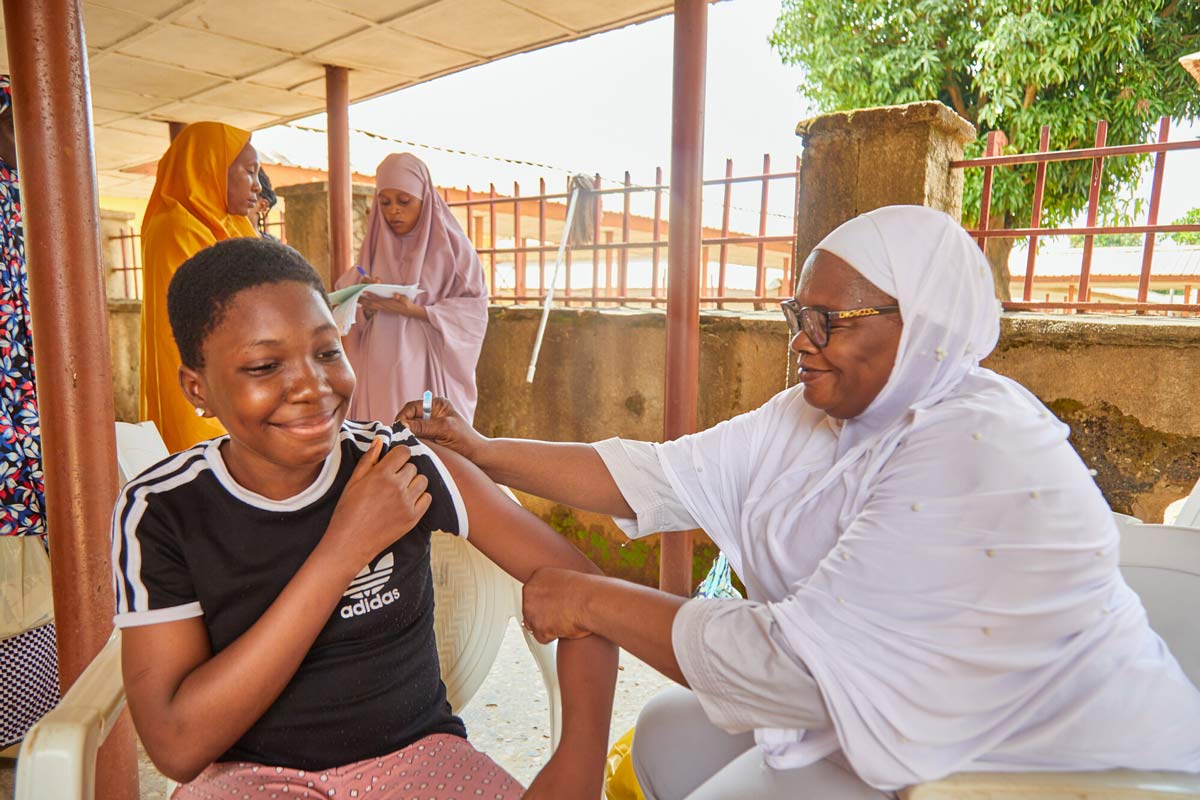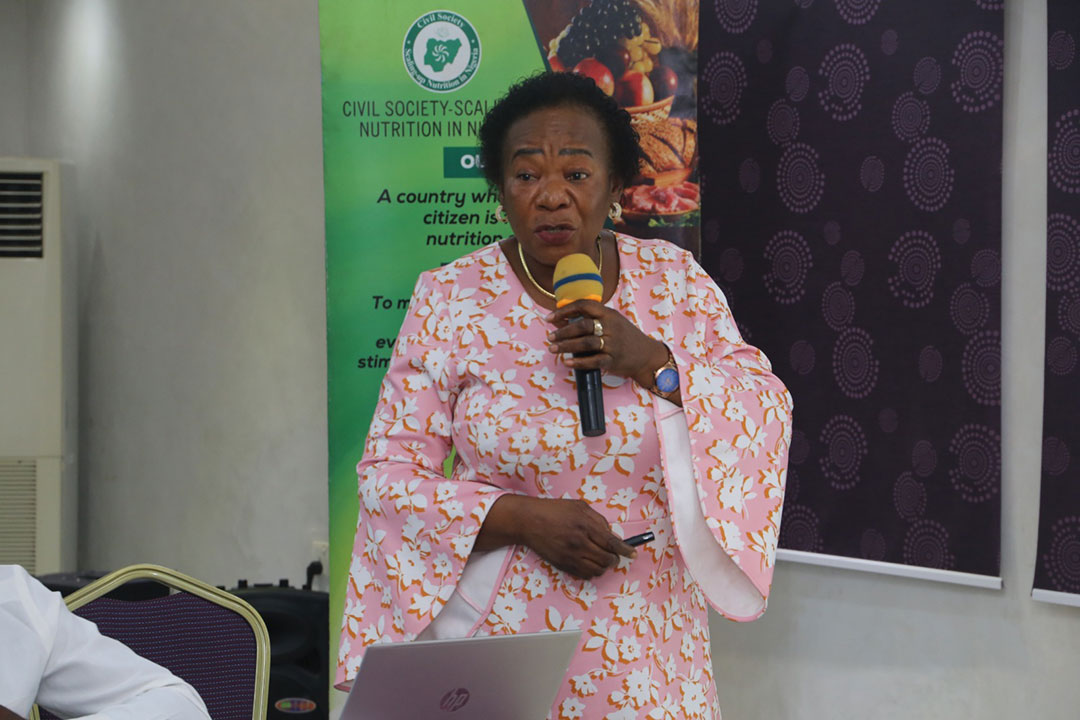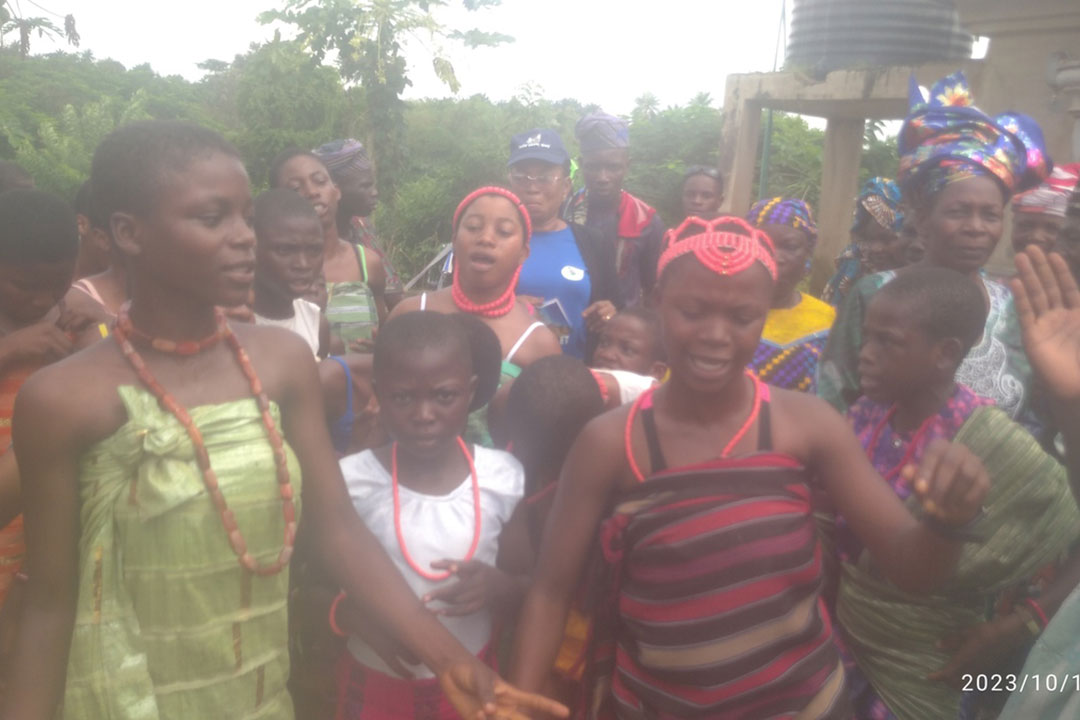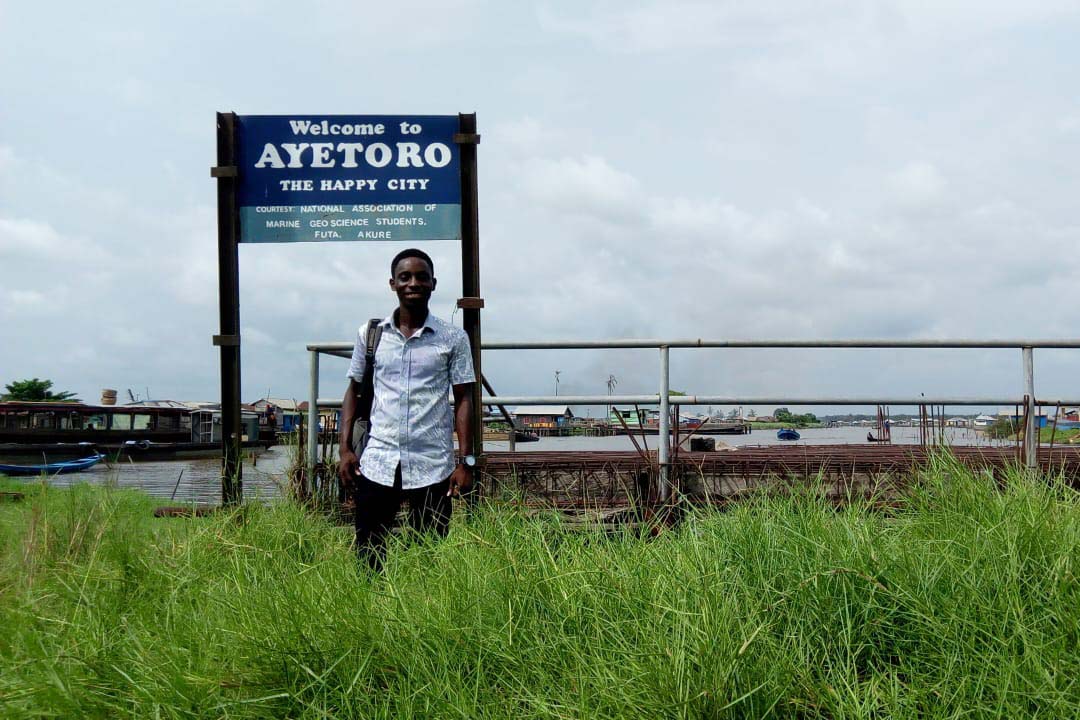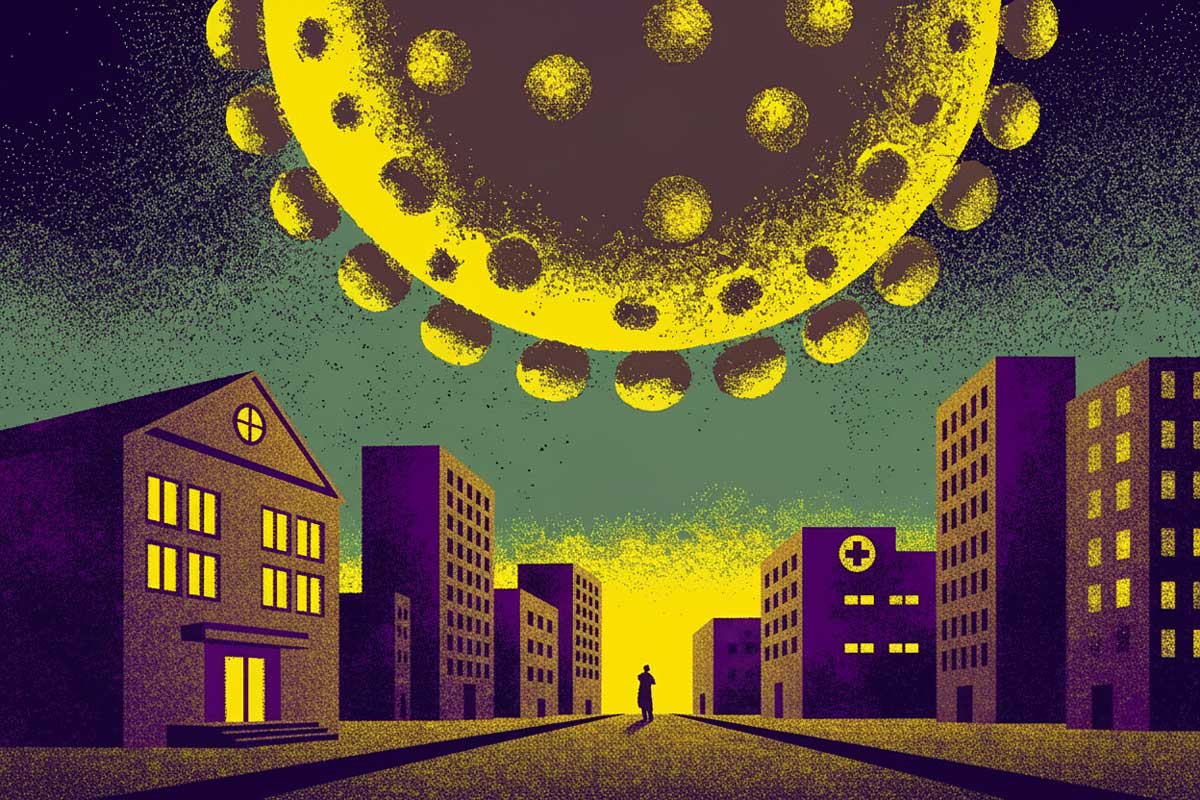Taking COVID-19 vaccines to the slums of Lagos
The Lagos state government is working hard to give residents of Kotomallam, a slum in Ojota, access to COVID-19 vaccines.
- 18 May 2022
- 4 min read
- by Royal Ibeh
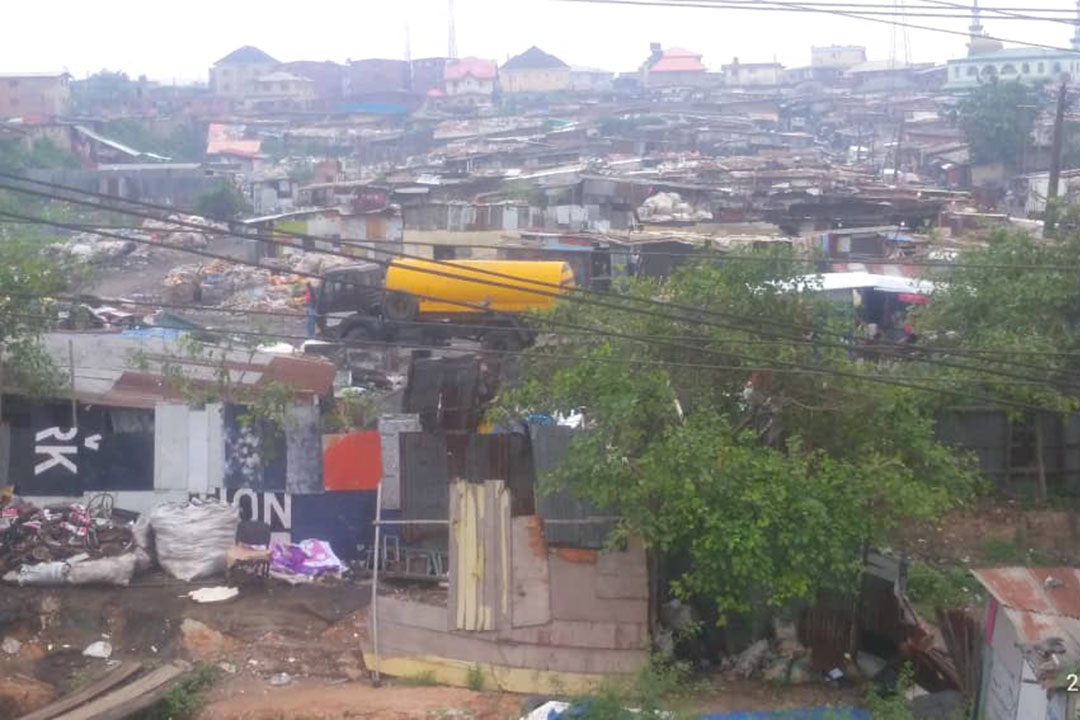
On 29 January 2021, 55-year-old Sahabo Abubakar woke up with COVID-19 symptoms. He had just become one of more than 200,000 Nigerians who have been infected since the start of the pandemic.
“I could barely breathe, and I was sneezing and coughing frequently. I couldn’t smell anything and couldn’t keep food down,” Abubakar says. “My wife wanted to take me to the hospital, but there was no money. At that time, I kept hearing the news of people dying because of the virus. I was so scared I would die, because I was already battling with hypertension and diabetes.”
“The vaccine is necessary because, as you can see, Kotomallam is a crowded environment. I work as a tailor here; this is how I feed my children. For me to be protected, I needed to take the vaccine.”
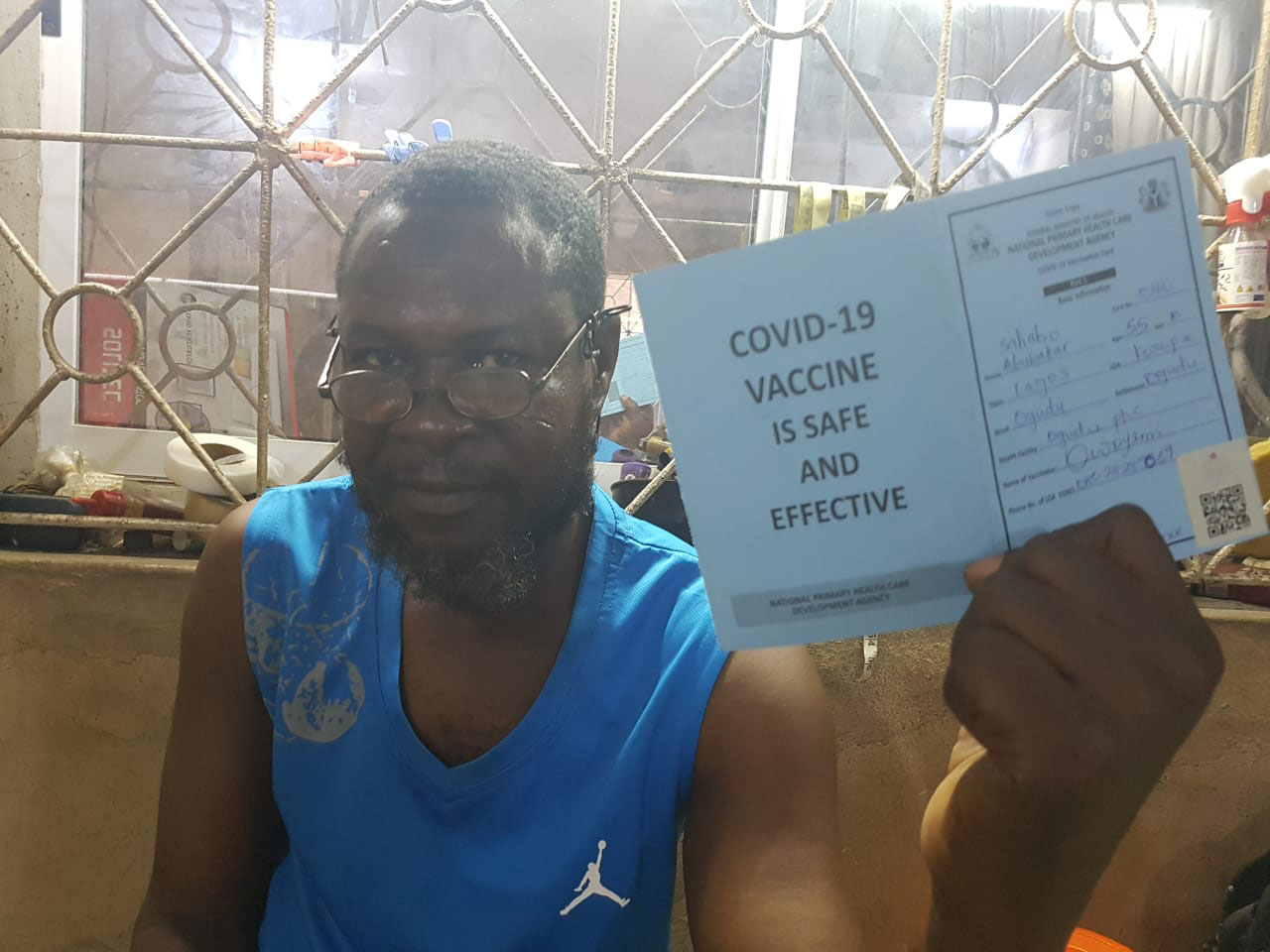
With time, however, Abubakar’s health started improving.
Having survived COVID-19 once, Abubakar was scared that it was only a matter of time before he contracted the virus again because of the environment he lives and works in.
He says, “No matter how careful you are, working in a place like Kotomallam puts you at a high risk of contracting the virus.”
Though just a few minutes’ drive from the busy city of Ojota, Lagos, Kotomallam is a slum inhabited partially by northerners and people from neighbouring countries like Benin and Ghana.
Many both live and carry out their business in Kotomallam. The majority of them live from hand to mouth, relying heavily on what they can sell for the day to be able to feed themselves, which means most cannot afford to leave their businesses to go to the nearest health centres to get their COVID-19 vaccine.
Abubakar explains that he visited Ogudu Primary Healthcare Centre several times to get his jab, but didn’t succeed each time because of the crowds.
Have you read?
To address these and other challenges that hard-to-reach communities like Kotomallam face, the Lagos State government, through the Lagos State Primary Healthcare Board, decided to take the COVID-19 vaccines to the people using a mobile vaccination clinic.
Idowu Oguntona, MD/CEO of Lagos Bus Services Limited, says that the newly acquired hospitality bus has been deployed to strategic locations across the state, to ensure vaccines are more accessible.
“This effort is to take the vaccines to the people. We have the platform and the vehicles available to drive the campaign. Wherever you are, the bus can reach you to provide information and administer vaccines,” adds Oguntona.
“12 December 2021 was one of the happiest days of my life, because that was the day that the Lagos state government visited Kotomallam with the COVID-19 vaccines,” Abubakar says.
It was never a question for Abubakar as to whether he would get the COVID-19 vaccine. He explains, “The vaccine is necessary because, as you can see, Kotomallam is a crowded environment. I work as a tailor here; this is how I feed my children. For me to be protected, I needed to take the vaccine.”
Despite being fully vaccinated, he still washes his hands regularly and wears his face mask.
“I repeatedly tell my brothers who are yet to take the vaccine, in Kotomallam and in my home state of Adamawa, to do so promptly. It is the only way we can survive the pandemic and live long enough to cater for the needs of our families,” he says.
For Tsalha Iliyasu, a 65-year-old man who left Sokoto State as a young man to come to Lagos, contracting COVID-19 is very easy due to the nature of his work. He is in the scrap business, collecting scraps of plastic, aluminium and iron.
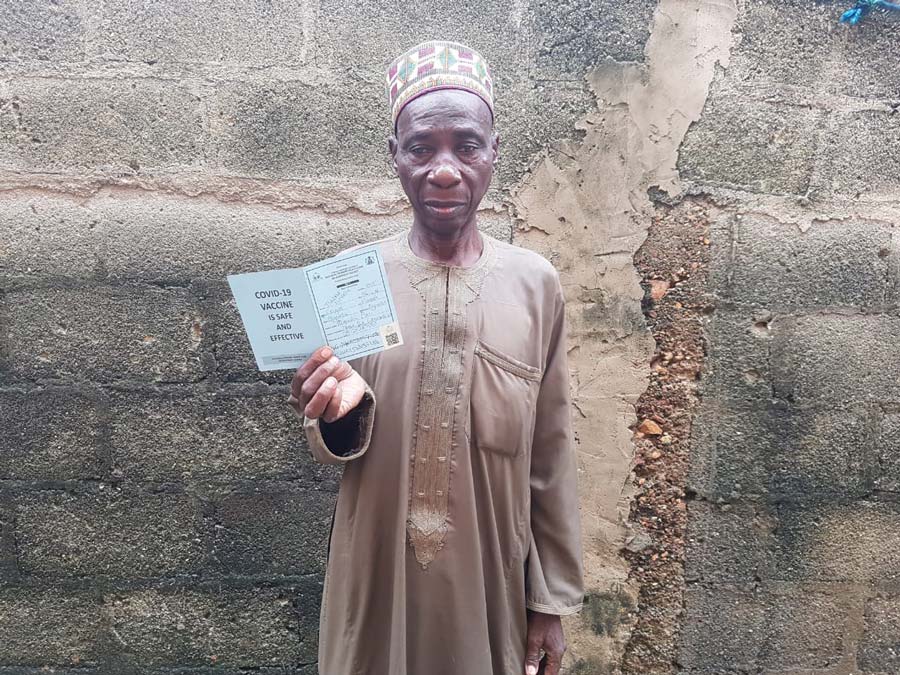
He says, “No matter how careful one might be, picking scrap from dump sites is a quick way of contracting the virus. I was so excited that the Lagos state government came to Kotomallam with the COVID-19 vaccine to vaccinate my brother and I. Presently, I have taken my second jab.”
